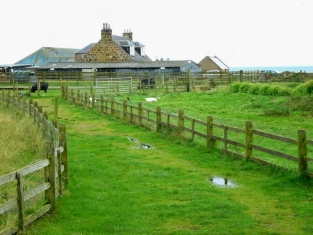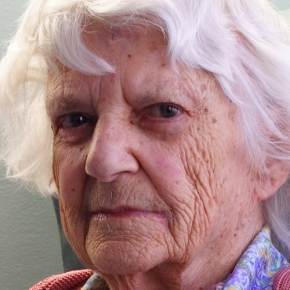Former RGU Principal Dr David Kennedy, whose background is in the sciences has believed for a long time that we are destroying the world around us. In another extract from his conversation with Voice’s Suzanne Kelly he talks of his horror at what we are destroying in the name of progress.
Dr Kennedy and I discussed where the world may be heading, and I mentioned Albert Einstein, who said:
“I do not know with what weapons World War III will be fought with, but World War IV will be fought with sticks and stones.”
Dr Kennedy Continues:
“Emily Spence of Massachusetts http://smirkingchimp.com/author/emily_spence and I corresponded on a number of issues: global warming, environment, overpopulation. The sad thing is the only sustainable communities we know of are the primitive ones we have destroyed. People on some of the remote Philippine islands lived entirely sustainably. They met their needs until the outside world impinged on and destroyed their way of life.
“However, we want more and it doesn’t matter how much we get, we still want more. It comes from the pleasure centres of the brain. Gambling and winning gives you a kick and so you go on. How can a man like Bill Gates, whose wealth could feed his family for generations, still want more? This causes me to despair. There is a weakness in the human brain or perhaps it is how nature defends itself and we may be on the way to destroying ourselves.
“How quickly is it all going to come? People talk about planning and planning horizons. The Romans had the idea of looking at things after every 5 years. As a manager in education I had to plan ahead as to what we needed, what courses we would offer, how many students would there be, and what resources would be needed. I took the areas I knew most about, and looked at 10-yearly intervals. At the time I did this, the changes in education were colossal and totally unpredictable. In the 70s there were ten colleges of higher education in Scotland, and they were like sacred cows. Scotland was proud of having had the highest literacy rate in the world.
“On coming to the 80s, dramatic changes were occurring in education. For a start, demographics – the birth rate. In the 1980s the number of colleges of education began to shrink. Some closed; some merged. In the 90s, most had disappeared, Northern College of Education here in Aberdeen being the last survivor. Now there are none.
“The same was true in nursing. I came to the conclusion that you might be able to guess what would happen in five years, but accurately forecasting for ten years ahead was absolutely impossible. The rate of change in technology is so incredible only a fool would predict what things will look like ten years from now.”
Dr Kennedy has a track record of concern for the environment and ecology. Apart from protesting over Trump’s honorary degree award, what are some of the issues that concern him most, locally and further afield?
“I’m very interested in what happens internationally. Governments swither over the issue of global warming. Scientists tell them that it is real; big business tells them it is a myth, and governments sit and fiddle while the earth warms and climates change dramatically.”
“As you might have guessed, I am a strong environmentalist with a long and deep concern about what we are doing to the biosphere on which all life depends. Biologists have known for decades about the acidification of the oceans and consequential damage to coral reefs and the communities that live on them.
“Likewise, we are poisoning the land by excessive use of chemicals, the production of which depends heavily on fossil fuel energy. With a rapidly rising population, human life will soon find it difficult to feed itself. Hence one of my concerns is about the short-sighted use of good farmland for house building.
“Just as disastrous is the pollution of the atmosphere with harmful radiation from nuclear power stations, by depleted uranium and gases emitted when burning fossil fuels, while at the same time tropical rainforests that absorb carbon dioxide and emit oxygen are being destroyed. Lack of rainfall in the Amazon basin, because of climate change, could result in its eventual desertification and the release of trillions of tons of carbon dioxide presently bound up as wood cellulose.”
In future extracts from this interview, we will carry Dr Kennedy’s views on how personal standards and values have had far-reaching consequences. No interview with this former university principal would be complete without establishing his views on education. That too will feature in Voice soon.

